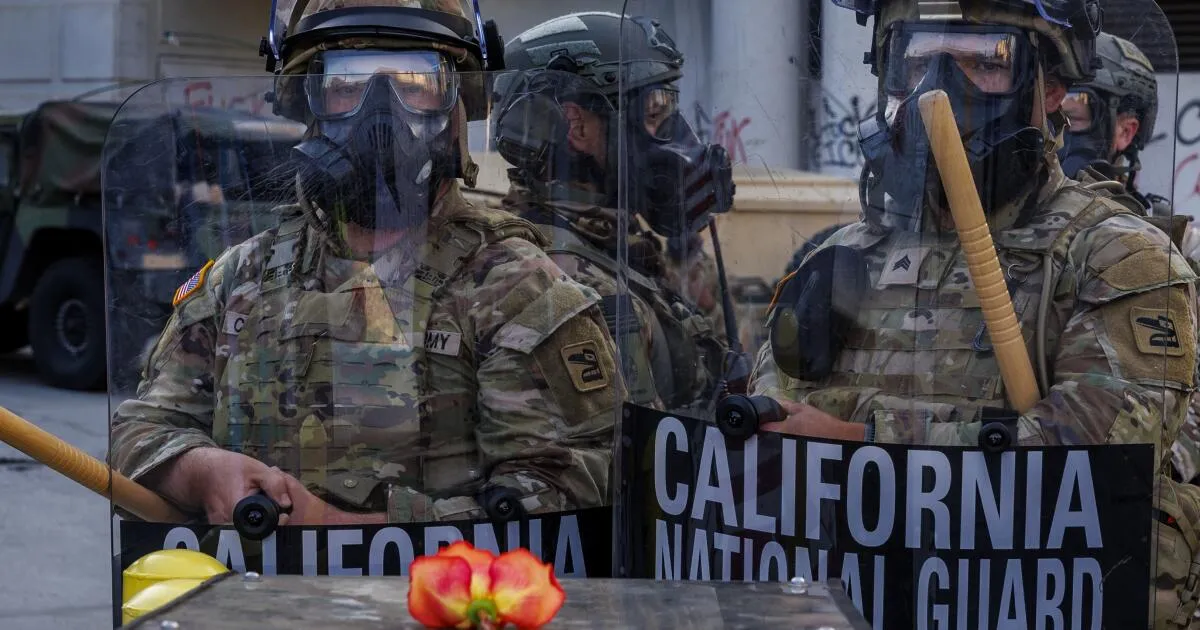
On Tuesday, the 9th Circuit Court of Appeals heard pivotal arguments regarding President Trump's controversial decision to deploy federal troops to Los Angeles. This legal battle has the potential to escalate into a significant challenge to presidential power, likely culminating in a review by the U.S. Supreme Court. A panel consisting of three judges—two appointed by President Trump and one by President Biden—intensely scrutinized the administration's claim that the president possesses nearly unlimited authority to deploy the military on American soil.
The judges expressed skepticism toward a recent ruling from a federal judge in San Francisco, which mandated that control of the National Guard should revert to California authorities immediately. Currently, a pause on this ruling is in place while deliberations continue, with a decision anticipated as early as this week. “The crucial question… is whether the judges seem inclined to accept Trump’s argument that he alone gets to decide if the statutory requirements for nationalizing the California National Guard are met,” stated Erwin Chemerinsky, the dean of the UC Berkeley School of Law.
One of the Trump-appointed judges, Mark J. Bennett of Honolulu, raised a critical question: Could a president call upon the National Guard across all 50 states and the District of Columbia in response to unrest in California, and be confident that such a decision would be “entirely unreviewable” by the courts? Assistant Attorney General Brett Shumate answered firmly, asserting, “Yes,” further stating, “The president gets to decide how many forces are necessary to quell rebellion and execute federal laws.”
California Deputy Solicitor General Samuel Harbourt cautioned that this interpretation of presidential power is excessively broad and poses a risk to American democratic norms if upheld. “We don’t have a problem with according the president some level of appropriate deference,” Harbourt explained. “The problem... is that there’s really nothing to defer to here.”
The Trump administration justified the troop deployment to Los Angeles by claiming it was necessary for ensuring that immigration enforcement agents could make arrests and conduct deportations amidst protests against these activities, which they labeled as “rebellion against the authority of the Government of the United States.” This characterization was met with skepticism from state and local officials, who deemed the military move unjustified and politically motivated.
Senior District Judge Charles R. Breyer, who initially ruled that control of most troops should return to California leaders, experienced swift pushback from the 9th Circuit, which stayed his decision. This stay maintained the Trump administration’s command over thousands of National Guard troops and hundreds of Marines in Los Angeles during significant protests such as the nationwide “No Kings” demonstrations. Despite the large turnout, the events were largely peaceful, with a significant reduction in arrests compared to previous weeks.
According to Pentagon spokesman Sean Parnell, the remaining troops in L.A. “will provide logistical support” for processing ICE detainees, echoing the administration’s view that the military presence is essential for curtailing ongoing “mob violence” in the city. However, Harbourt countered these claims, asserting that California leaders are actively addressing public safety concerns.
As the appellate court considered these arguments, California officials bolstered their case in district court, with Attorney General Rob Bonta describing the president's actions as an “unprecedented and dangerous assertion of executive power.” Bonta's motion for a preliminary injunction emphasized that the president's approach effectively grants him unchecked power to federalize state National Guard units and deploy armed soldiers in urban areas at his discretion.
Los Angeles officials have also voiced their concerns, stating in an amicus brief that the military deployment complicates efforts to ensure the safety of residents. They warned that the domestic use of the military could erode public trust and exacerbate conflicts with local law enforcement.
The judges appeared more focused on the legal implications than the immediate realities on the ground. Judge Eric D. Miller raised a crucial point about the potential for federal law enforcement to invoke military support whenever faced with resistance. As deliberations continue, experts predict that the outcome of this case could dictate how future judges interpret similar challenges, with the Supreme Court likely to review the matter in the coming months.
Both sides are eager for a resolution, but as Professor Carl Tobias from the University of Richmond noted, any comprehensive ruling from the Supreme Court may not materialize until the next term, given the timing of the current legal proceedings.